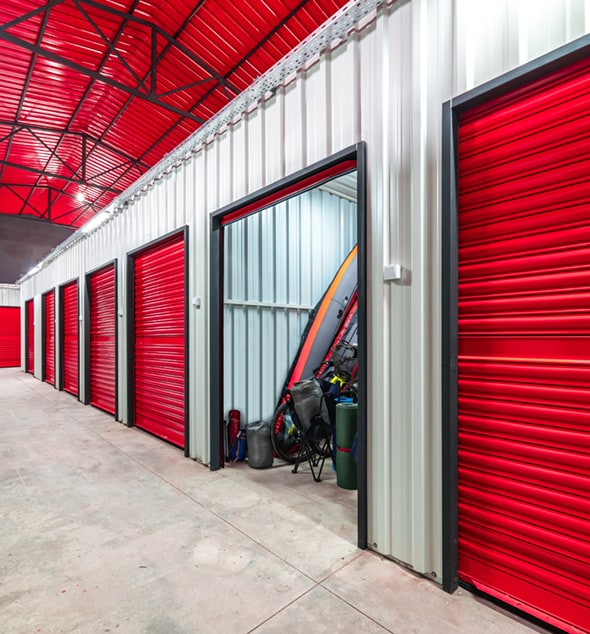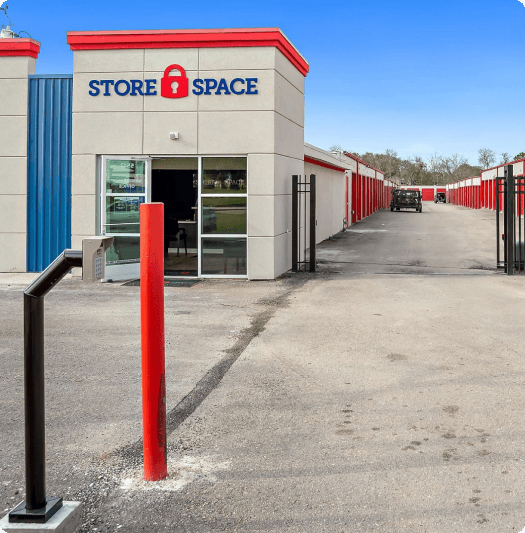9 Essential Techniques For Storing Books Long-Term

Every serious bibliophile needs to know how to store books long-term. Luckily, we flattened the learning curve by creating this step-by-step guide. No more guessing which material you should use to properly wrap your books or trying to determine what type of storage is best for preserving your personal library. If you read our guide for storing paper, you'll find similar principles applied for long-term book storage.
Keep reading to preserve your Pratchett, store your Salinger, and defend your Dante.
9 Steps for How to Store Your Books Long-Term
Follow these 9 actionable steps to ensure your precious library remains pristine during its storage hibernation.
1. Inspect Your Library for Dust & Pests
When starting to determine how to pack books for long-term storage, it can be tempting to skip ahead and spend all your energy searching for the best storage solution. However, before you visit a self-storage facility or find an optimal place in your house, you should inspect your library for damaging dust and pests.
No matter if your personal library is full of valuable books or beloved editions, it probably holds sentimental value. Therefore, take some time to use a soft paintbrush or toothbrush and remove dust from covers and interior pages. While you complete this step, you will also want to inspect pages for insect eggs.
Insect eggs normally resemble tiny seeds, and while they may not appear threatening now, but upon hatching they could overrun and destroy your personal collection. To protect your books from insects, don’t use bug spray or any type of insect repellent. The chemicals contained within these repellents can be even more damaging for a collection. Carefully wipe and remove all traces of insect eggs or larva to best fortify your collection before storage.
2. Air Out Your Home Library
The proper way to store books also involves eliminating the possibility of mold and mildew. The best way to eliminate these threats is to air out damp or musty-smelling books before packing your book collection away. Make sure to pay special attention to book covers and allow effective air circulation to dry out any problem areas. If you do find a book that is already showing signs of mildew or mold, you will need to keep the book out of storage. Proper humidity and temperature control is rule #5 of the 6 Golden Rules for Packing for Long-Term Storage
Including a moldy or mildewing book within a box of others could be damaging to your entire collection. Mildew and mold can spread quickly.
3. Protect Dust Jackets with Covers
The main reason dust jackets are included on hardcover editions is to protect them from debris and damage. However, the reality of book collecting is having a pristine dust jacket drastically increases value.
Therefore, if your main concern is protecting your valuable books when they forgo long-term storage, you should consider purchasing protective covers or slips for all dust jackets.
4. Continue Wrapping Your Library Correctly
Protecting your dust jackets is only the first step in wrapping your books for long-term storage. Next, you will want to acquire the right materials to properly wrap your entire collection of books. Avoid using newspaper or plastic bags. Newspaper is acidic and plastic bags will trap moisture inside, threatening your precious library.
Instead, purchase a ream or two of archive paper. This paper is acid-free and will ensure your personal library remains in good condition. Bubble wrap is another good material for book wrapping, however, it has been known to leave polka dot patterns on the cover of books if wrapped too tightly.
5. Purchase Quality Containers
Cardboard boxes are frowned upon when it comes to determining how to best store books long-term. These boxes offer little protection for when possessions are dropped or roughly transported during their storage experience. These boxes are fine for short-term storage but should be abandoned entirely before moving your collection to another location.
Instead, use archival boxes or secure storage totes for optimal long-term storage of your personal library. If you do decide to store your books in plastic containers or totes, be extra vigilant to eliminate any moisture. Plastic totes are great at protecting books from physical damage but are also prone to trapping moisture since their lids form an airtight seal.
6. Organize & Arrange Your Library
When it comes to organizing and arranging your personal library for storage, the possibilities are endless. Maybe you will want to have a box dedicated to your favorite titles or arrange your entire collection alphabetically. Either way, when packing your books in archive boxes or another storage container, you shouldn’t pack them too tightly together. Packing too loosely could also lead to problems.
A great way to combat the stress of “too tight” or “too loose” is to utilize leftover wrapping materials. Consider placing a sheet of bubble wrap or acid-free paper between each book in a box. In addition, materials left over from wrapping can be used to fill empty space in storage boxes. This technique will prevent your books from shifting around during transportation.
7. Choose Climate-Controlled Storage
The best way how to store books long-term is with climate-controlled storage. These storage units are temperature regulated and offer your personal library the best protection against frequent fluctuations in temperature and humidity.
When left in an area prone to temperature fluctuations and extreme humidity, a book collection can deteriorate rapidly, even if you follow all the other steps for optimal book storage. Therefore, professional climate-controlled storage is a must-have for serious book collectors.
If you don’t have room for climate-controlled storage in your book collecting budget, determine the best place to store books in your home. Most likely, this will be an upstairs closet or similar temperature-regulated space.
8. Place Your Containers on Shelving
Once you secure a climate-controlled storage unit, you will want to also purchase shelving or something else to store your boxes of books on. You never want to leave a box or container of valuable books directly on the floor of a storage unit. This contact with the floor can cause your books to be exposed to a plethora of threats.
9. All Organic Materials will Eventually Decay
Finally, the last step in packing books for long-term storage is accepting that organic materials have limitations. All physical books will age over time. This is the reality of paper made from trees and other plants.
Furthermore, the bookmaking process has changed significantly since Gutenberg first invented the printing press in the mid-1400s. Older books, which were produced and printed with higher quality materials, have a larger propensity for keeping their quality over time. However, the cost-effective bookmaking methods practiced today have decreased longevity overall.
By following the steps listed above, you can protect your collection from rapid aging and damage. However, just as many troubled poets have professed, your desires are feeble in the wrath of time.
FAQS
Expecting you will have questions about how to store books long-term or how to pack books for long-term storage, we took the time to answer a few of the most common ones below.
Q: How should I store books in storage units?
A: The best way to store books in a storage unit involves a combination of steps. This process includes determining how to pack books for long-term storage and determining the proper way to store books. Steps in the process include inspecting your library for dust and insect eggs, cleaning covers and pages, wrapping books correctly, renting climate-controlled storage, and storing your boxes or containers of books off the ground.
Q: How should I store books in plastic containers?
A: When storing books in plastic containers, it is important to vigilantly eliminate any moisture or dampness from your library. If you find any books that have already started to mildew or mold, you will want to remove these from your collection. Storing a moldy or mildewing book with others will soon lead to your entire personal library being affected.
Q: Does stacking books damage them?
A: Books can be damaged if stacked poorly. However, a great way to avoid damage when arranging or organizing books for storage is to place bubble wrap or acid-free paper between books. These materials can also be used to fill any extra space within your storage containers or archive boxes. This will prevent your books from shifting during transportation to and from your climate-controlled storage unit.
Wrapping Up: How to Store Books Long-Term
It’s clear, the best way how to store books long-term is with climate-controlled storage. These temperature-regulated units simply cannot be matched in terms of the comprehensive protection they offer.
If you are looking for climate-controlled storage for your personal library, you should consider renting from Store Space Self Storage.
We have professional, affordable, climate-controlled storage solutions available in a variety of unit sizes.
Use our storage location finder to locate the Store Space facility nearest to you.







